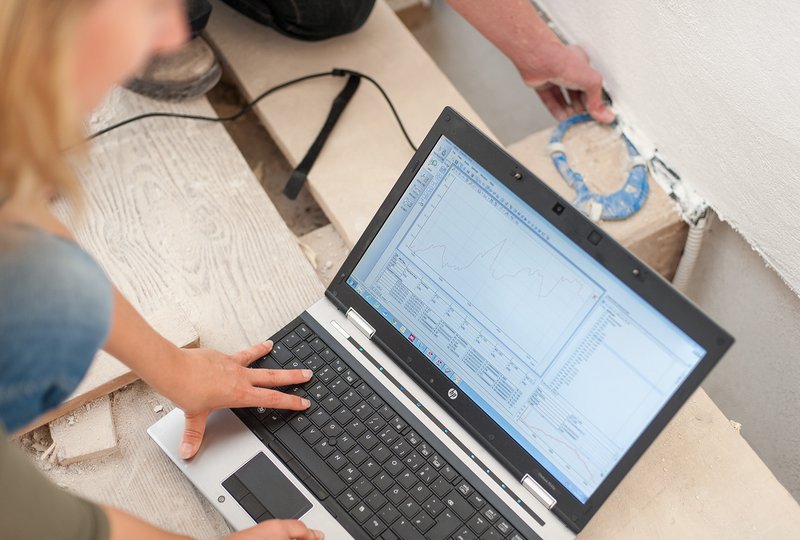
Digital Technologies in Heritage Conservation
In A Nutshell
Profile
Nowadays, building conservation, museum sciences, and cultural heritage protection use innovative methods of digitalization. The digital representation of buildings and objects has become standard in heritage sciences: both in terms of the foundational research in accordance with heritage requirements and the permanent monitoring of a building’s condition with intelligent sensor systems. The Master’s program in Digital Technologies in Heritage Conservation (unique in Germany) offers you an overview of the possibilities created by current technology. You can expand your knowledge in the use of such technologies and will be trained to work at the interface of heritage sciences and technology. The academic program in ‘digital technologies in heritage conservation’ is offered in cooperation with Bamberg University. You can find additional information on the academic program page: Digitale Denkmaltechnologien
STUDYING IN BAMBERG AND COBURG
Bamberg University and Coburg University enjoy an outstanding reputation in heritage, object, and engineering sciences as well as in application-oriented digital technologies. The interdisciplinary team of teachers, the differentiation of subjects, and the technical equipment ensure a cutting-edge program. The lectures take place in Coburg and in Bamberg.
Structure of the Program

The program consists of four module groups with different goals and a total of 15 modules.
The first program segment teaches the fundamental principles. This know-how is the prerequisite for specialization and applications.
The second program segment covers compulsory elective subjects in three specialization modules and three associated profiling modules, with which the students can choose three different directions within the subject.
MODULE GROUP FOUNDATIONS
Semester 1 and 2, (45 ECTS)
- Digital technologies in heritage conservation
- Computer science in heritage conservation
- Digital object acquisition
- Digital archiving
- Signal analysis / measurement technology
- Building physics in monuments
- Materials / structural engineering
- Virtual modeling
MODULE GROUP SPECIALIZATION
Semester 2, (15 ECTS)
- Focus on "Digital modeling in heritage conservation”
Contents: building information modeling, data models, virtual reality, simulation of structure - Focus on "Digital analysis and monitoring in heritage conservation”
Contents: digital modeling systems, non-destructive material analysis, physical assessment and restoration, monitoring, structural analysis
- Focus on "Digital networking and knowledge sharing in heritage conservation”
Contents: communication platforms, data bases, web technologies, PR
MODULE GROUP PROFILING
Semester 3, (30 ECTS)
The digital technologies are applied to practical examples from current research. Here, the students learn how to assess objects, how to apply their knowledge, and networking skills. They select the modules according to the focus area.
MASTER’S THESIS
Semester 4, (30 ECTS)
Professional Perspectives

The Master’s program in Digital Technologies in Heritage Sciences prepares students for complex, technical applications in the area of heritage conservation. Graduates can take on highly technical responsibilities in heritage conservation and cultural management. They solve problems in the area of object and damage assessment, data archiving, technical building state and object analysis, the planning of restoration and maintenance measures, and the development of intelligent monitoring concepts.
Possible professional fields are:
- surveying, building research and planning firms, e.g. construction on existing objects, structural planning, building physics in heritage conservation
- Specialized agencies such as Heritage Agencies
- Museums and archives
- Research and science
Application and Admission Requirements
Admission conditions
- First university degree with a standard program duration of at least six semesters or 180 ECTS points and an overall GPA of 2.5 (German grading system) or better
- Fields of core program: architecture, civil engineering, heritage sciences and preservation of cultural heritage, building preservation and construction on existing objects, restoration sciences, computer science, digital humanities, archeology, geography, surveying, archival sciences, cultural management, or communication design
Application
Submit your application to the Otto-Friedrich-Universität Bamberg.
